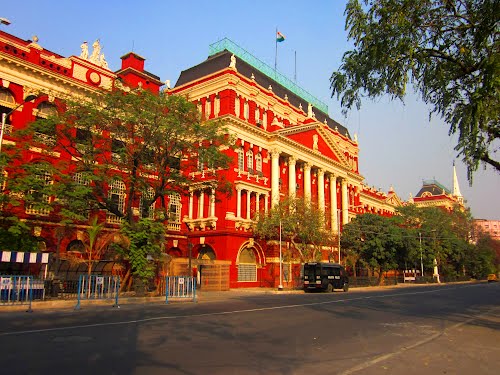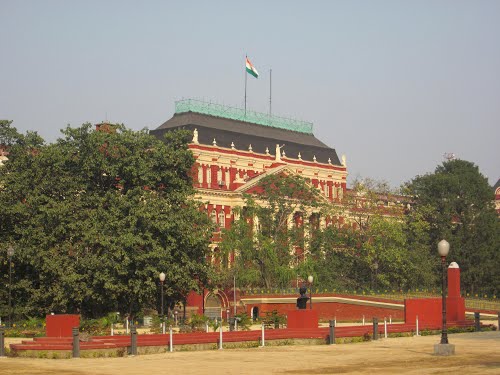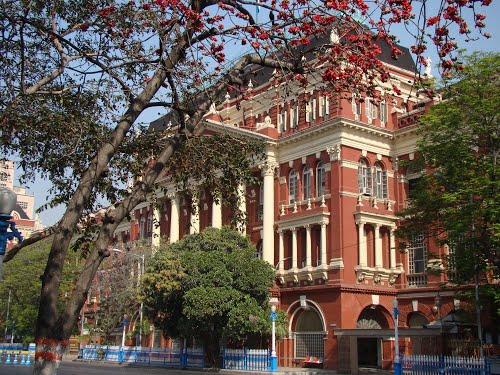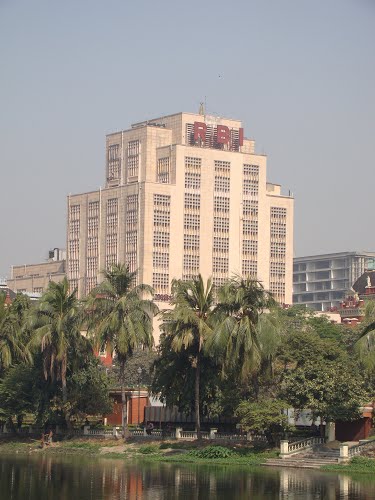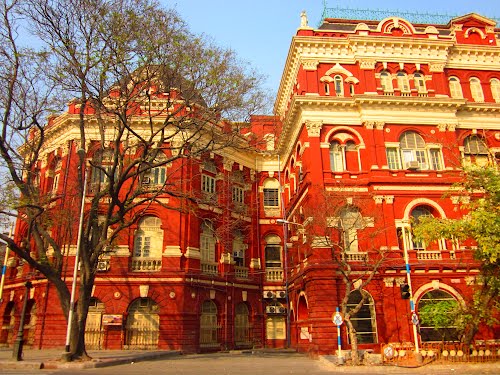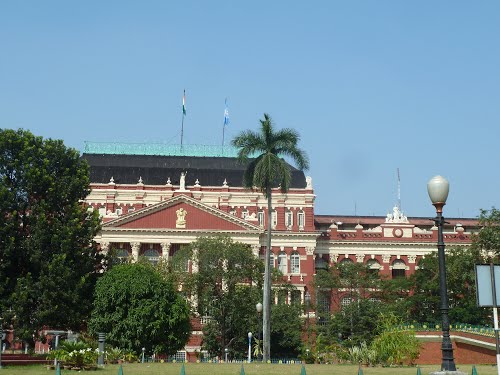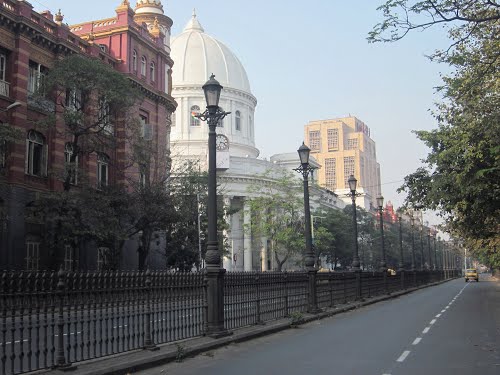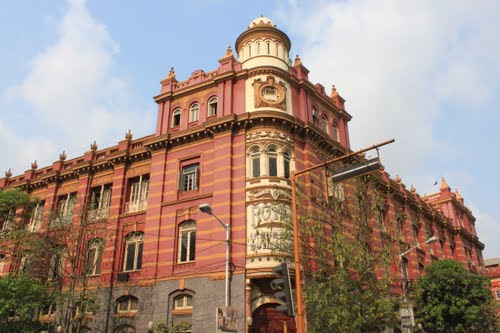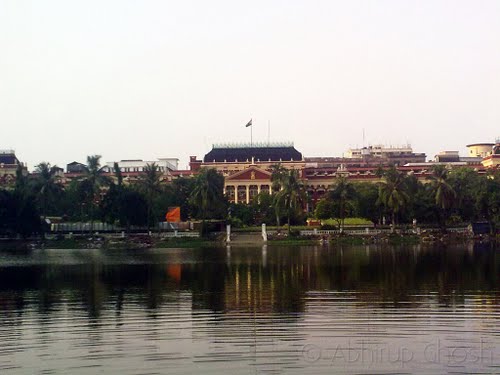B.B.D. Bagh, formerly called Dalhousie Square, is the shortened version for Benoy-Badal-Dinesh Bagh. It is the seat of power of the state government, as well as the central business district in Kolkata in the Indian state of West Bengal.
History
B.B.D. Bagh was created as the center of the British East India Company's trading post along the banks of the Hooghly River. Between the river and the tank (now known as Lal Dighi), lay the original Fort William. In the summer of 1756, Nawab Siraj ud-Daulah of Bengal, Bihar and Orissa launched an attack on the British town for the company's decision to strengthen the fortifications around it. The survivors of the attack were sent to a garrison within the fort which spurred an incident infamously known as the Black Hole of Calcutta. The British soon retook the city after the Nawab retreated from the forces of Robert Clive. Within a year, the British East India Company's forces had taken all of Bengal and Calcutta, along with the square, was established as the commercial and political center of British India.
Over the next one and a half centuries, the square grew in importance and influence. It was named after Lord Dalhousie, the Governor-General of India. After the fall of company rule in India, the Writers' Building became the secretariat of the Viceroy of India. A number of corporations and institutions opened offices and headquarters in and around the square, giving it its role as the central business district of the city. In 1912, the capital of British India was officially moved to New Delhi, but the majority of the financial and political institutions in the area remained.
During the first half of the 20th century, the Indian Independence Movement began to reach its peak and took a violent turn in Bengal. On the eighth of December 1930, three revolutionaries, Benoy, Badal, and Dinesh, stormed the building and fatally shot the Inspector General of Prisons, N.S. Simpson. The three committed suicide and the square was renamed B.B.D. Bagh in their honor after Indian independence. In 1947, the political establishments were officially handed over to the government of India and the government of the newly formed state of West Bengal. Over the next few decades, Calcutta would go through rapid economic decline, but B.B.D. Bagh would remain the heart of East India.




